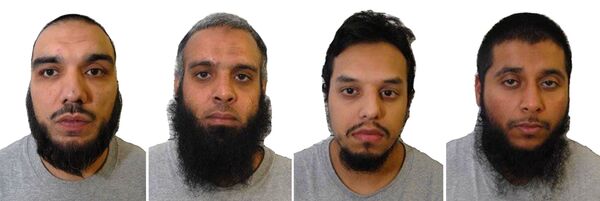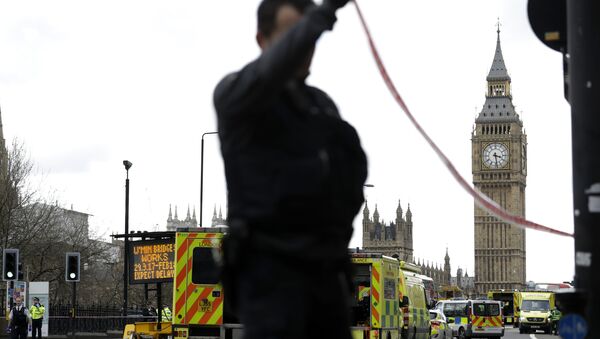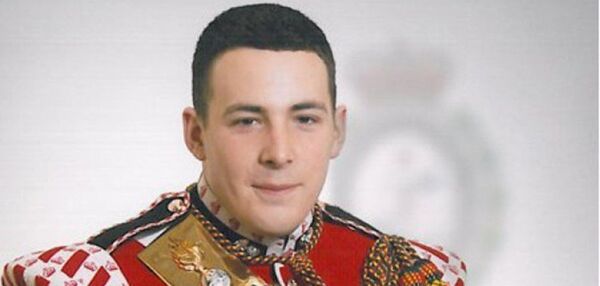The UK's domestic intelligence agency MI5 came under intense scrutiny throughout the trial after the exposure of a series of embarrassing texts by the undercover officers involved in the case.
Sentences:
— CPS (@cpsuk) August 3, 2017
Naweed Ali – Life, min 20 yrs
Khobaib Hussain — Life, min 20 yrs
Mohibur Rahman — Life, min 20 yrs
Tahir Aziz — Life, min 15 yrs https://t.co/ycx2K4cTrs
Agents used mocking names for their female colleagues, including "Moose" and "Keegan" (the latter allegedly had a perm reminiscent of footballer Kevin Keegan's), and in one message, an operative known as "Vincent" pledged to "put in an Oscar performance" in the witness box.
In another message, "Vincent" told his temporary cover officer that he could not under any circumstances be trusted with "small children, guns, loose women, £50 [US$66] notes, strippers, massage parlors, any nightclub in Prague or Liverpool, bald women (they really turn me on), any car that will exceed 17 miles per hour, any five-star hotel, any of my three passports, Jacob's Creek sparkling Shiraz, Dalmore cask strength whisky…"
Moreover, in February 2016, before the trial was due to start, "Vincent" wrote that the trio's defense was "nothing we ain't seen before… usual bollox we planted it all and fitted em up!!!"

They furthermore accused an officer of perjury, after he he said officers working on the investigation had not met during their evidence, even though they had driven to London together and shared a hotel.
The officer, who failed to recognize the threat to the case posed by the woman's affinities, was overheard joking about the juror being sexually interested in him by a journalist, who reported it to court authorities, sparking an internal investigation. It revealed the individual had asked a fellow juror to enquire as to whether he was single on her behalf.
Defense barristers argued the love-struck juror could find the defendants guilty in order to please the officer.
In the end, Justice Globe merely dismissed the would be "matchmaker" — the individual with a soft spot for a man in uniform retained her post, after claiming she had no intention of taking her attraction further.
While the men were convicted, suggesting jurors did not buy claims of covert MI5 direction in the foiled plot, it did emerge during the trial that Rahman had been approached twice by MI5 in 2010 and June 2015.
He claimed MI5 had pestered him to become an informant, inviting him to the VIP section of the Britannia Stadium, where he was given around US$250 as an initial payment for his services. The money was then used to buy two mobile phones, which he gave to Hussain and Ali.
Whatever the truth of the matter, covert official involvement in foiled terror plots are a common theme in both the UK and US. It has been estimated that of the 508 Americans prosecuted in terrorism-related cases in the decade post-9/11, 243 were involved with Federal Bureau of Investigation informants, while 158 were involved with undercover agents. Of those cases, an informant or undercover operative actively led 49 defendants in their terrorism plots.
While authorities typically claim in such cases undercover agents help foil planned attacks before they occur, a 2014 Human Rights Watch report suggests that in fact authorities actively abet individuals (who are often mentally ill or economically desperate) in crimes they could never accomplish on their own, and may well have never planned if it wasn't for official goading, supplying fake weapons and manufacturing with key elements of intended attacks.
As a result, serious questions hover over whether authorities are catching and imprisoning individuals with genuinely terroristic ambitions, or conning otherwise innocent individuals. Despite these concerns, there is not one recorded instance of an entrapment defense being successfully argued in such cases.



